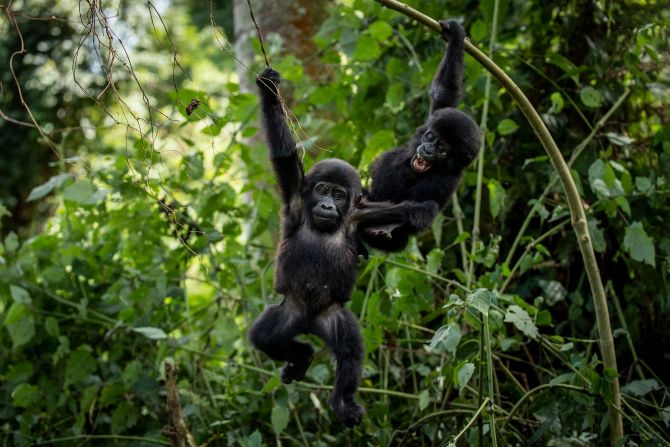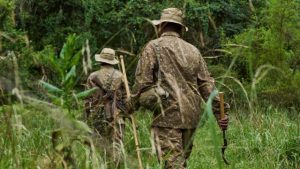Why Uganda’s $800 Gorilla Trek Is a Priceless Conservation Experience
4 min read
When considering Africa’s prime wildlife destinations, Kenya’s Maasai Mara, Tanzania’s Ngorongoro Crater, and Rwanda’s Virunga volcanoes often steal the spotlight. Botswana, Namibia, and South Africa also feature prominently for those seeking top-tier wildlife encounters. Yet, nestled in East Africa is a lesser-known gem that offers an unparalleled wilderness experience: Uganda.
Renowned for its rich wildlife, Uganda is home to Queen Elizabeth National Park with its tree-climbing lions and leopards, the Kazinga Channel teeming with hippos, elephants, and crocodiles, and the iconic Bwindi Impenetrable Forest. This forest is particularly notable for housing over 500 mountain gorillas, making Uganda a premier destination for those seeking an intimate wildlife encounter.
One of the most sought-after experiences in Uganda is the gorilla trekking adventure in Bwindi Impenetrable Forest. Priced at $800 per hour, this exclusive trek offers a unique opportunity to meet a group of habituated mountain gorillas. This high price, while steep, is a key component in supporting Uganda’s sustainable tourism efforts. Each trek is conducted by experts from the Uganda Wildlife Authority, with small groups of up to eight visitors allowed to observe one of 18 habituated gorilla groups daily. A more immersive option is available for $1,500, where visitors can participate in the habituation process itself. Due to the close genetic relationship between gorillas and humans, those with colds are not permitted to participate to avoid transmitting illnesses.
While the cost of this experience may seem prohibitive, it is part of a broader strategy aimed at promoting high-quality, sustainable tourism in Uganda. These premium experiences help fund conservation efforts and support local communities, offering a model that contrasts with the mass tourism often seen in other destinations.
Volcanoes Safaris, a leading operator in the region, has been pioneering luxury eco-tourism in Uganda for over 25 years. In July 2024, they opened Kibale Lodge, their fourth luxury property in Uganda. Located near the Rwenzori Mountains and the Kazinga Channel, Kibale Lodge features just eight rooms, or bandas, and offers rates starting at $1,200 per night. The lodge emphasizes eco-friendly practices and local involvement, with the Jane Goodall Institute collaborating on community outreach programs. These programs aim to cultivate a new generation of women leaders in conservation, ensuring that local knowledge and skills are integral to the lodge’s operations.

Volcanoes Safaris prides itself on employing local people, with over 200 full-time and 300 casual staff from Uganda, Rwanda, Burundi, and the Democratic Republic of Congo. Approximately 85% of lodge staff come from surrounding communities, creating jobs and supporting local economies. This approach also addresses a critical issue in Uganda: the displacement of the Batwa people, who were removed from their ancestral lands in Gahinga and Bwindi Impenetrable Forest National Parks in 1991. The Batwa, an ancient indigenous tribe, have faced significant challenges, including discrimination and economic hardship.
To address this, Volcanoes Safaris has established a 13-acre permanent settlement for the Batwa at Gahinga Lodge. This settlement includes land for farming, a vocational center, and opportunities for visitors to engage with the Batwa community. This initiative aims to provide tangible benefits to the Batwa people, helping to integrate them into the conservation and tourism economy.
The high cost of gorilla trekking and luxury lodges in Uganda might seem extreme, but it is a necessary investment in sustainable tourism. The revenue generated from these activities supports anti-poaching efforts, habitat preservation, and community development. The International Union for the Conservation of Nature (IUCN) reported a significant increase in the mountain gorilla population, from 680 in 2008 to over 1,000 in 2018, largely due to these conservation-focused treks.
Responsible Travel highlights that strict tourism protocols are essential for protecting the gorillas from disease and stress. Low tourist numbers and rigorous regulations help ensure that the gorillas remain undisturbed and that their habitat is preserved. This model contrasts sharply with the mass tourism that has caused environmental damage in other regions.
EU Africa Rise, a European Union-funded organization supporting sustainable tourism in East Africa, notes that while Uganda’s international recognition may lag behind its regional peers, it offers high satisfaction ratings from travelers. There is a growing emphasis on creating high-quality, sustainable tourism experiences that benefit both local communities and conservation efforts.
As Uganda continues to develop its tourism sector, it is crucial to prioritize models that balance environmental protection with community benefits. The combination of high-quality, high-cost experiences and local involvement offers a pathway to sustainable tourism that can support both conservation and local livelihood.






